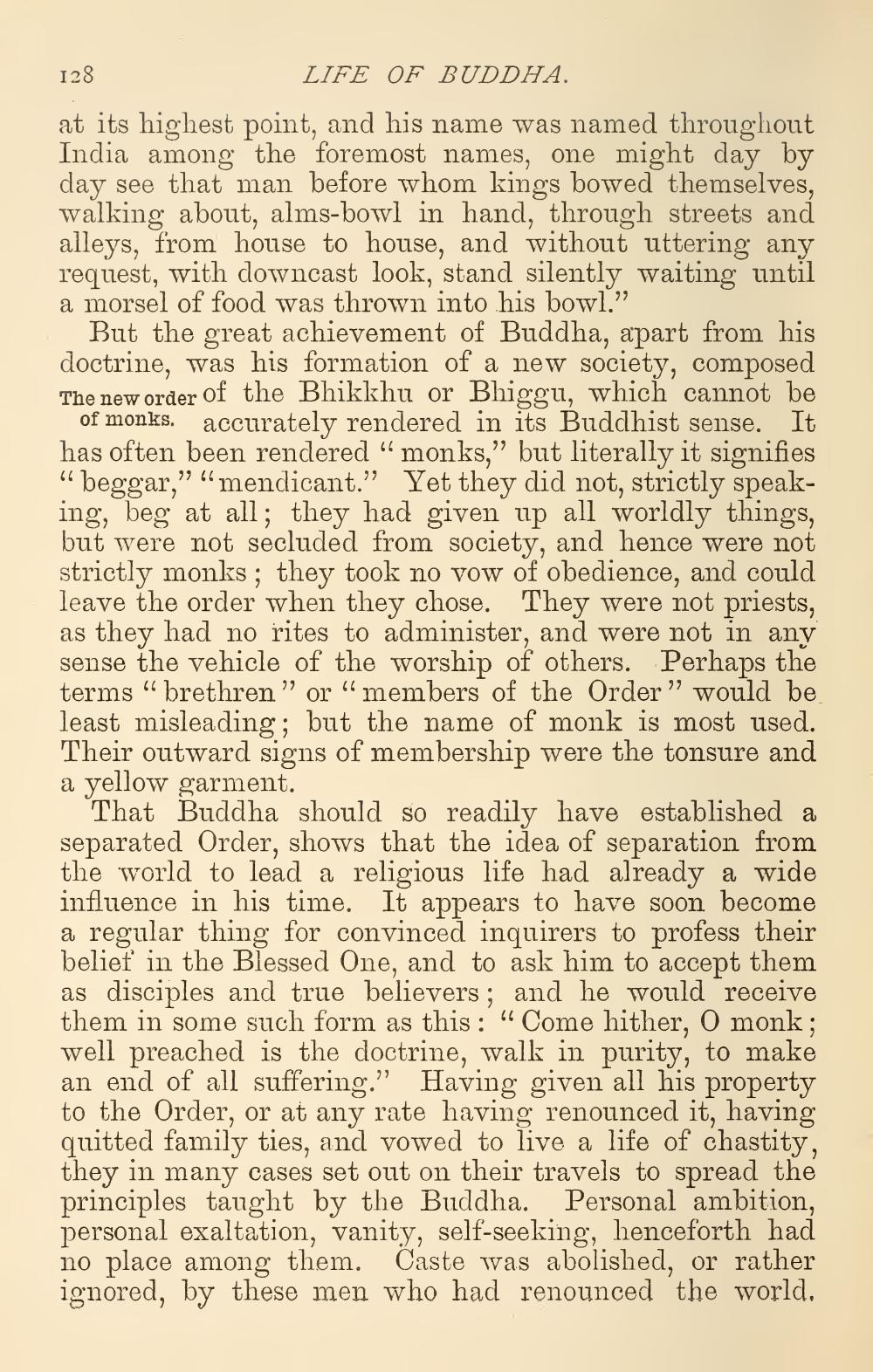________________
128
LIFE OF BUDDHA. at its highest point, and his name was named throughout India among the foremost names, one might day by day see that man before whom kings bowed themselves, walking about, alms-bowl in hand, through streets and alleys, from house to house, and without uttering any request, with downcast look, stand silently waiting until a morsel of food was thrown into his bowl.”
But the great achievement of Buddha, apart from his doctrine, was his formation of a new society, composed The new order of the Bhikkhu or Bhiggu, which cannot be
of monks. accurately rendered in its Buddhist sense. It has often been rendered "monks," but literally it signifies "beggar," "mendicant.” Yet they did not, strictly speaking, beg at all; they had given up all worldly things, but were not secluded from society, and hence were not strictly monks; they took no vow of obedience, and could leave the order when they chose. They were not priests, as they had no rites to administer, and were not in any sense the vehicle of the worship of others. Perhaps the terms “brethren" or "members of the Order” would be least misleading; but the name of monk is most used. Their outward signs of membership were the tonsure and a yellow garment.
That Buddha should so readily have established a separated Order, shows that the idea of separation from the world to lead a religious life had already a wide influence in his time. It appears to have soon become a regular thing for convinced inquirers to profess their belief in the Blessed One, and to ask him to accept them as disciples and true believers; and he would receive them in some such form as this: “Come hither, O monk; well preached is the doctrine, walk in purity, to make an end of all suffering." Having given all his property to the Order, or at any rate having renounced it, having quitted family ties, and vowed to live a life of chastity, they in many cases set out on their travels to spread the principles taught by the Buddha. Personal ambition, personal exaltation, vanity, self-seeking, henceforth had no place among them. Caste was abolished, or rather ignored, by these men who had renounced the world.




